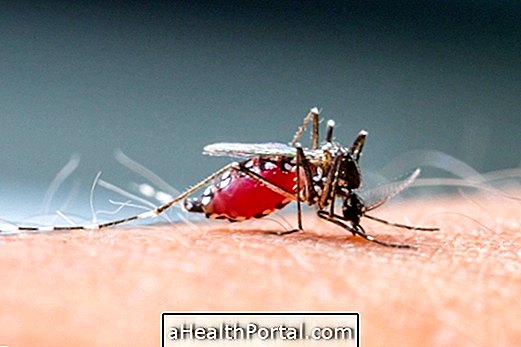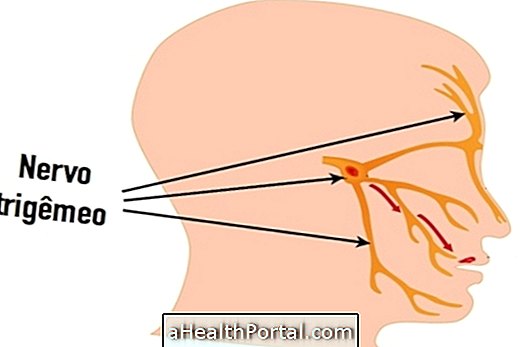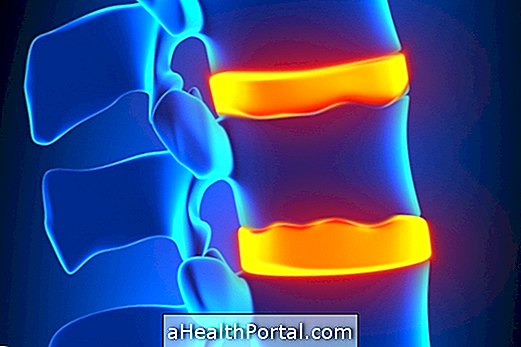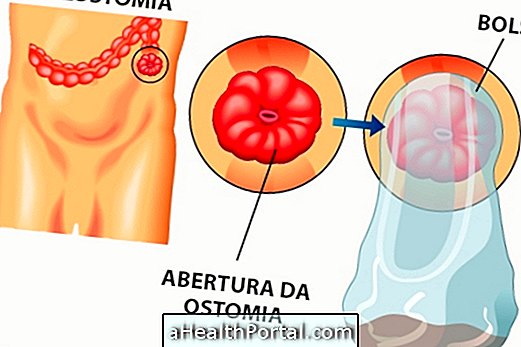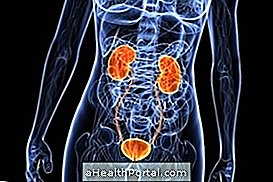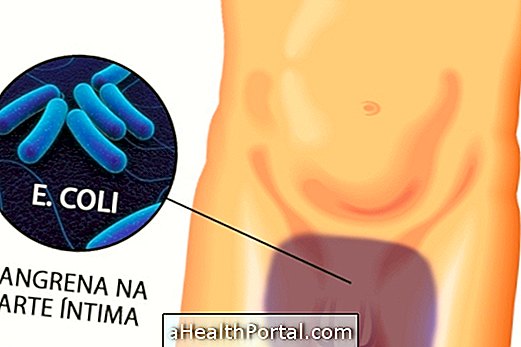The causes of obesity always involve overeating and lack of physical activity, but in addition there are other causes involved, such as genetic factors, hormonal disorders, emotional problems and even infection by a virus and the decrease of dopamine, which helps in feeling of satiety.
Find out what are the main causes of obesity and how to fight each one:
1. Genetic factors
Genetics is involved in the cause of obesity, especially when parents are obese, because when both the father and the mother are obese, the child has a 80% chance of developing obesity. When only 1 of the parents is obese, this risk decreases to 40% and when the parents are not obese the child has only a 10% chance of being obese.
Even though parents are obese, environmental factors have a great influence on weight gain. However, it may be more difficult for a teenager or adult who is obese since childhood to be able to maintain optimal weight because he has more fat-storing cells that can easily become full.
- What to do to lose weight: The practice of daily exercise and eating low in fat should be part of the routine. Remedies for weight loss may be recommended by the endocrinologist, but with willpower it is possible to reach the ideal weight even without having to resort to bariatric surgery.
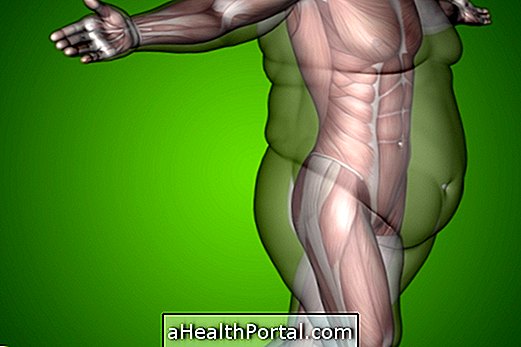
2. Hormonal changes
Hormonal diseases are rarely the exclusive cause of obesity, but about 10% of people who have any of these diseases have a higher risk of being obese:
hypothalamic syndrome, cushing's syndrome, hypothyroidism, polycystic ovarian syndrome, pseudohypoparathyroidism, hypogonadism, growth hormone deficiency, insulinoma, and hyperinsulinism.
However, one must take into consideration that whenever the person is overweight there are hormonal changes involved, but this does not always indicate that this is the tail of obesity. Because with weight reduction these hormonal changes can be cured without the need for medications.
- What to do to lose weight: Control the disease that is involved in overweight, and eat a diet of reeducation food and practice daily exercises.
3. Emotional disturbances
Losing a close person, a job, or bad news can lead to a feeling of deep sadness or even depression, and these favor a reward mechanism because eating is pleasurable, but as the person feels sad for most of the time. time, you do not find the energy to exercise, to be able to spend the calories and the fat that you ingested the most in a moment of anguish and pain.
- What to do to lose weight: It is important to seek help from friends, family or a therapist to overcome this sadness or depression, finding new motivation to live. Doing exercises, even if you do not feel like it, is an excellent strategy because physical exertion releases endorphins into the bloodstream, which promotes a sense of well-being. Eating tryptophan-rich foods daily is also a good help. But in addition, it is also advised not to drown the sorrows in a pan of butter, fast food or an ice cream pot, and remember to always have a diet with few calories to actually burn the accumulated fat.
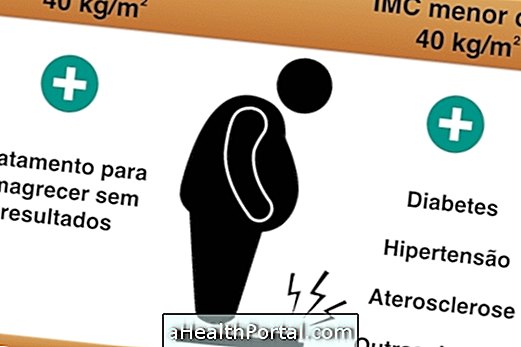
4. Fat Burning Remedies
The use of hormonal remedies and corticosteroids also promote weight gain and can promote obesity because they swell and can lead to increased appetite. Some drugs that get fat are diazepam, alprazolam, corticosteroids, chlorpromazine, amitriptyline, sodium valproate, glipizide and even insulin.
- What to do to lose weight: If possible, you should stop taking the medicine, but only if you can not change the medicine for another, the solution is to eat less and exercise more.
5. Ad-36 virus infection
There is a theory that the infection by the Ad-36 virus is among the causes of obesity because this virus has already been isolated in animals such as chickens and rats and it has been observed that the contaminated ones accumulate more fat. The same has been observed in humans but there are not enough studies to buy how it influences obesity. What is known is that the infected animals had more fat cells and they were fuller and therefore sent hormonal signals for the body to accumulate and store more fat.
- What to do to lose weight: Although this theory is confirmed to lose weight will be necessary to spend more calories than ingere. This just indicates the level of difficulty a person can have in order to lose weight and maintain themselves at the ideal weight.
6. Less dopamine
Another theory is that obese people have less dopamine, a fundamental neurotransmitter to feel good and satiated, and with its decrease the person ends up eating more and increasing their calorie intake. It is also believed that even if the amount of dopamine is normal, its function may be compromised. It is not yet confirmed whether this decrease in dopamine in the brain is the cause or consequence of obesity.
- What to do to lose weight: In this case the key is to increase the production of dopamine by exercising and eating foods like cooked egg, fish and flaxseed, which increase serotonin and dopamine being responsible for giving the sensation of pleasure and well- being in the body. The endocrinologist may also point out the use of diet pills, which decrease appetite to make it easier to stick to the diet.
7. Changes in Leptin and Ghrelin
Leptin and ghrelin are two important hormones for regulating appetite, when their functioning is not properly regulated the person feels more hungry and so eats a greater amount of food, and more often during the day. Ghrelin is produced by fat cells and the more cells the person has, the more ghrelin will produce; however, in the obese it is common to find another factor that is when the ghrelin receptors are not working properly, so even though it has a lot ghrelin in the body, the feeling of satiety never reaches the brain. Ghrelin is produced in the stomach and indicates when a person needs to eat more because it increases appetite. Studies in obese have confirmed that even after eating too much ghrelin in the body, does not decrease and so the always feel more hungry.
- What to do to lose weight: Even if you can confirm by the blood test some changes in the mechanism of leptin and ghrelin, the solution to lose weight will be to eat less and exercise more. However, in this case it may be necessary to take medicine to control the appetite. See which are the weight loss medicines that the endocrinologist can indicate.
8. Lack of physical activity
Lack of daily physical activity is one of the main causes of obesity because doing exercises that make sweating the shirt for at least 40 minutes every day is the best way to burn the calories eaten or fat accumulated. By being sedentary the body can not burn all the calories ingested through eating and the result of this is the accumulation of fat in the region of the belly, arms and legs, but the more weight the person has, the more areas are filled with fat, such as the back, under the chin, and on the cheeks.
- What to do to lose weight: The only way out is to stop being sedentary and do some physical activity every day. Those who do not like the gym should take a walk down the street, for example. But the ideal is to make it a habit and to be pleasant and not a moment of pure suffering, you must choose a physical activity that you like a lot but that is enough to move and sweat shirt. When the person is bedridden and can not move or is very old, the only way to lose weight will be through food.
9. Food rich in sugar, fat and carbohydrates
Exaggerated consumption of foods rich in sugar, fat and carbohydrates is the main cause of obesity because even if the person has other factors involved, there will be no accumulation of fat if the person does not eat. If the person has a low metabolism, the greater the chances of accumulating fat, and in this case the output is eating less, but if the person has a faster metabolism, he can eat more and not get fat, but these are not the most part of the population. The binge eating that is when the person eats a lot in a few minutes is also one of the great causes of obesity but in any case the food can be a refuge when your emotions are not well controlled.
- What to do to lose weight: Making a restart in the brain, deciding to eat well and follow a dietary reeducation is crucial to being able to stop being obese. You do not have to starve yourself, but everything you eat should be simple, no sauces, no fat, no salt and no sugar, with little carbohydrate. Vegetable soups, fruit salads are always welcome and all goodies are banned. To be able to maintain the diet and stop being obese the most important thing is to find motivation. Writing in a notebook the reasons that make you want to lose weight is an excellent strategy. Putting these patterns on the wall, a mirror or wherever you are constantly can be a great help to always feel motivated to stay focused and really slim down.
10. Other common causes
Other factors that also favor weight gain and may be related to obesity are:
- Stop smoking because the nicotine that diminishes the appetite is no longer present, favoring the increase of the calorie intake;
- Take a vacation because that changes the daily routine and food tends to be more caloric at this stage;
- Stop exercising because the body's metabolism goes down quickly, although the appetite stays the same and with it more fat ends up being accumulated;
- Pregnancy, due to the hormonal changes at that stage, associated with anxiety and the 'permission' of the society to eat for two, which in fact is not correct.
In any case, the treatment for obesity always involves diet and exercise, but the use of drugs to lose weight may be an option, especially for those who need to have bariatric surgery, for example, to reduce the risks of surgery.
What does not work for weight loss
The main strategy that does not work to lose weight is to follow a diet of fashion because these are too restrictive, difficult to meet and because even if the person slim very fast, will probably get fat again as fast as he lost weight. These crazy diets usually take away a large number of nutrients, and can make the person sick, moody and even malnourished. For this reason it is most advisable to do a food reeducation directed by a nutritionist.
See when you need to diet, take medicine, or have surgery to lose weight.








